
Keflavik: Gateway to Iceland's Wonders
Keflavik, a charming town on the Reykjanes Peninsula, is often the first stop for many visitors to Iceland. Known for hosting the country's main international airport, Keflavik is more than just a transit point. It offers a unique blend of history, culture, and natural beauty that is sure to captivate any traveler. Stroll through the town and visit the Viking World Museum, where you can explore a replica of a Viking ship and learn about Iceland's Viking heritage. The town's waterfront is perfect for a leisurely walk, with stunning views of the ocean and numerous sculptures dotting the landscape. Don't miss the chance to visit the Icelandic Museum of Rock 'n' Roll, which celebrates the country's rich musical history. Keflavik is also a gateway to some of Iceland's most breathtaking natural wonders. A short drive will take you to the famous Blue Lagoon, where you can soak in the geothermal waters and relax amidst surreal lava fields. The Reykjanes Peninsula itself is a UNESCO Global Geopark, offering dramatic landscapes, hot springs, and volcanic craters. It’s a paradise for nature lovers and adventure seekers alike.
Local tips in Keflavik
- Visit the Blue Lagoon early in the morning or late in the evening to avoid crowds.
- Check out the local fish and chips at one of the seaside restaurants for a taste of fresh Icelandic seafood.
- The weather can be unpredictable, so pack layers and waterproof clothing.
- Rent a car to explore the Reykjanes Peninsula at your own pace.
- Don’t miss the Northern Lights between September and April; find a dark spot outside town for the best views.
Keflavik: Gateway to Iceland's Wonders
Keflavik, a charming town on the Reykjanes Peninsula, is often the first stop for many visitors to Iceland. Known for hosting the country's main international airport, Keflavik is more than just a transit point. It offers a unique blend of history, culture, and natural beauty that is sure to captivate any traveler. Stroll through the town and visit the Viking World Museum, where you can explore a replica of a Viking ship and learn about Iceland's Viking heritage. The town's waterfront is perfect for a leisurely walk, with stunning views of the ocean and numerous sculptures dotting the landscape. Don't miss the chance to visit the Icelandic Museum of Rock 'n' Roll, which celebrates the country's rich musical history. Keflavik is also a gateway to some of Iceland's most breathtaking natural wonders. A short drive will take you to the famous Blue Lagoon, where you can soak in the geothermal waters and relax amidst surreal lava fields. The Reykjanes Peninsula itself is a UNESCO Global Geopark, offering dramatic landscapes, hot springs, and volcanic craters. It’s a paradise for nature lovers and adventure seekers alike.
When is the best time to go to Keflavik?
Iconic landmarks you can’t miss
Blue Lagoon
Discover the enchanting Blue Lagoon, a geothermal spa in Iceland known for its azure waters, wellness treatments, and stunning natural landscapes.
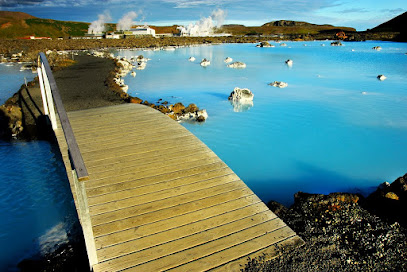
Perlan
Explore the captivating blend of nature and culture at Perlan, Reykjavik's iconic natural history museum and planetarium, offering stunning views and local cuisine.

Sun Voyager
Discover the breathtaking beauty of the Sun Voyager in Reykjavik, a tribute to exploration and Icelandic culture, surrounded by stunning coastal views.
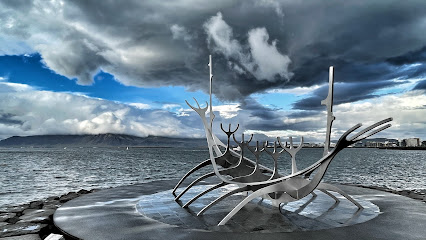
Keflavík International Airport
Discover Keflavík International Airport, Iceland's primary gateway, blending modern amenities with the essence of Icelandic culture for travelers.
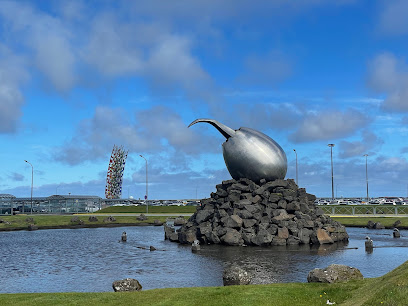
Bridge Between Continents
Explore the Bridge Between Continents in Hafnir, Iceland, where two tectonic plates meet in a stunning showcase of natural beauty and geological wonder.
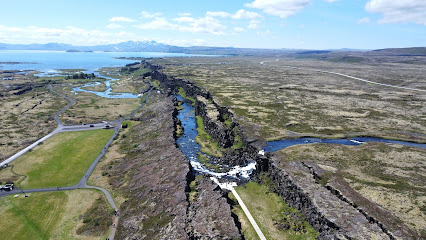
Gunnuhver Hot Springs
Explore the stunning Gunnuhver Hot Springs in Iceland, a geothermal wonderland of steaming fumaroles and bubbling mud pools surrounded by natural beauty.
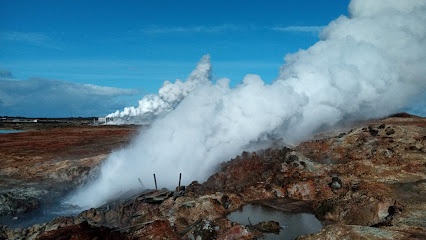
Reykjanesfólkvangur
Explore the stunning landscapes and unique geothermal features of Reykjanesfólkvangur Nature Preserve, a true gem of Iceland's natural beauty.
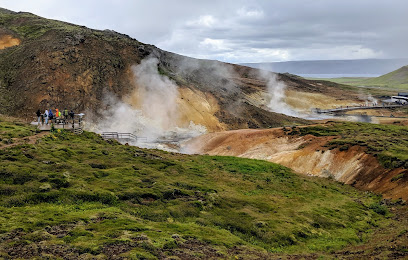
Valahnúkamöl
Discover the stunning cliffs and breathtaking views at Valahnúkamöl, a natural wonder on the Reykjanes Peninsula in Iceland.
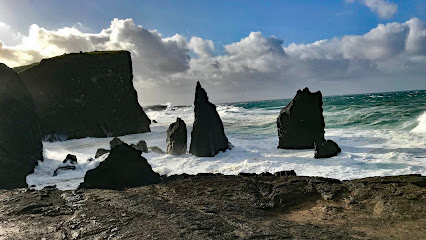
KuKu Campervan Iceland
Experience Iceland like never before with KuKu Campervan Rentals, your partner for unforgettable road trips through stunning landscapes and natural wonders.
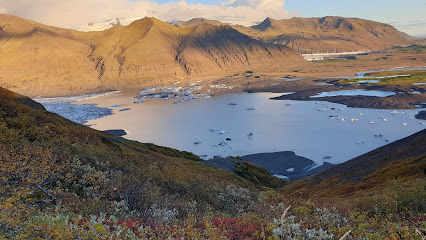
Viking World
Explore the Viking Age at Viking World, an interactive museum showcasing Iceland's rich Norse heritage through captivating exhibits and a stunning longship replica.
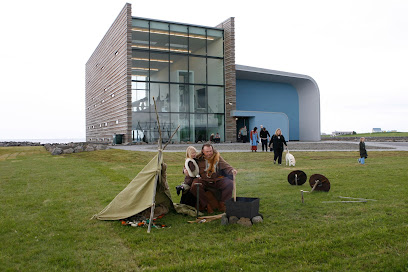
Garður Old Lighthouse
Discover the historic Garður Old Lighthouse, a scenic beacon of Iceland's maritime legacy, surrounded by stunning coastal views and natural beauty.
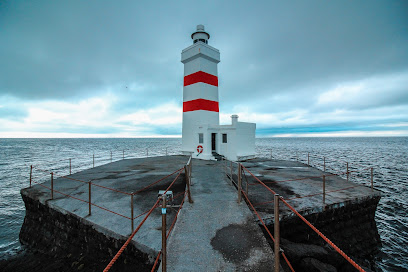
Green Motion Car Rental Iceland
Discover Iceland's breathtaking landscapes and hidden gems with Green Motion Car Rental, your gateway to adventure in Keflavík.
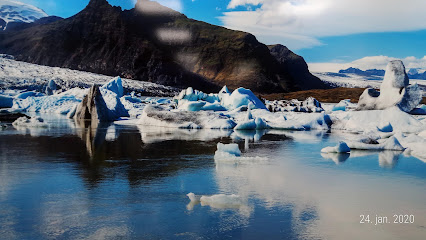
Aurora Hotel at Reykjavik-Keflavik Airport Terminal KEF
Experience comfort and convenience at Aurora Hotel, located at Keflavík International Airport, your gateway to Iceland's breathtaking landscapes.

The Settlement Exhibition
Discover the Viking roots of Reykjavik at The Settlement Exhibition, where history comes alive through engaging exhibits and archaeological wonders.
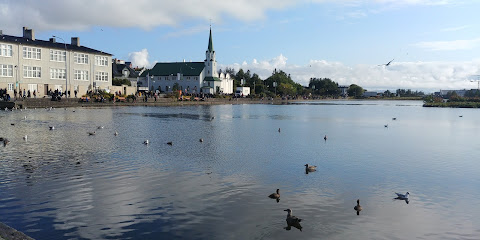
Árbær Open Air Museum
Discover the rich cultural heritage of Iceland at Árbær Open Air Museum, where history comes alive through enchanting exhibits and engaging experiences.
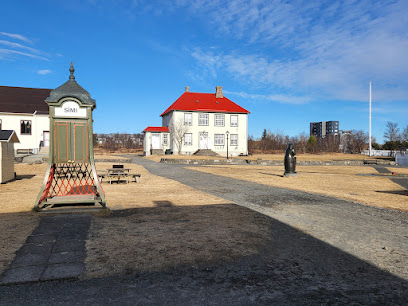
Unmissable attractions to see
Blue Lagoon
Experience the ultimate relaxation at the Blue Lagoon, Iceland's iconic geothermal spa renowned for its stunning beauty and rejuvenating waters.
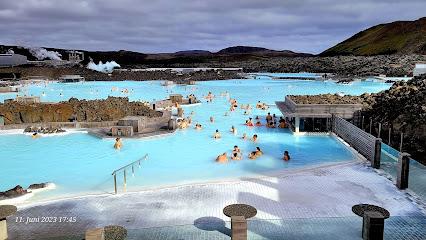
Sun Voyager
Discover the Sun Voyager in Reykjavik, a stunning sculpture symbolizing hope and exploration, set against breathtaking Icelandic landscapes.
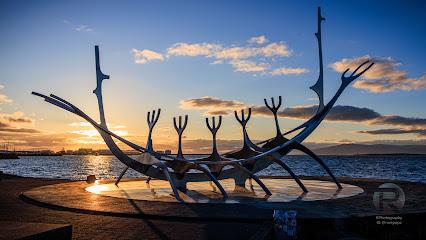
Harpa Concert Hall and Conference Centre
Explore Harpa Concert Hall, Reykjavik's architectural marvel, hosting diverse cultural events and offering stunning views of the surrounding landscape.
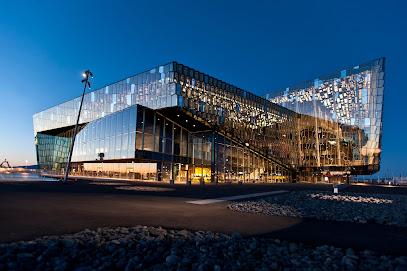
Sky Lagoon
Discover the magical Sky Lagoon in Kópavogur, Iceland, where soothing geothermal baths meet stunning natural beauty for an unforgettable spa experience.
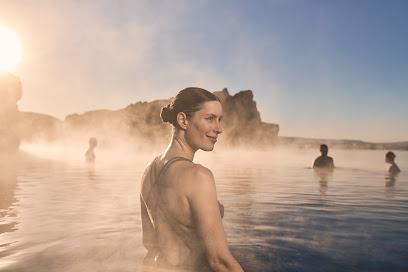
Tröll Expeditions HQ
Experience Iceland's breathtaking landscapes with Tröll Expeditions - your gateway to unforgettable adventures in nature.
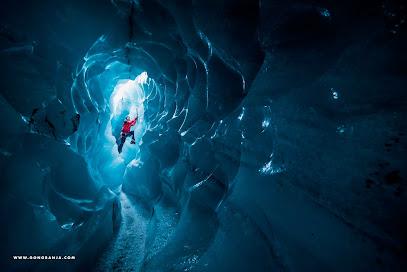
The Icelandic Phallological Museum
Discover the unique and humorous world of the Icelandic Phallological Museum, where education meets whimsy in the heart of Reykjavik.
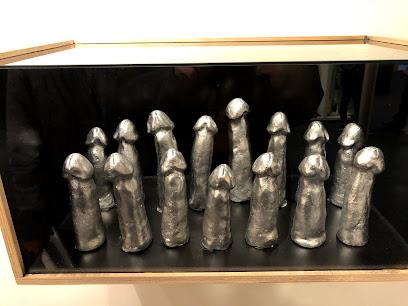
FlyOver Iceland
Soar over Iceland's stunning landscapes with FlyOver Iceland, an immersive experience combining adventure and breathtaking visuals in Reykjavik.
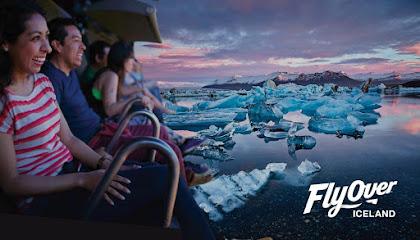
Bridge Between Continents
Experience the wonders of nature at the Bridge Between Continents in Iceland, where you can walk between two tectonic plates and enjoy breathtaking views.
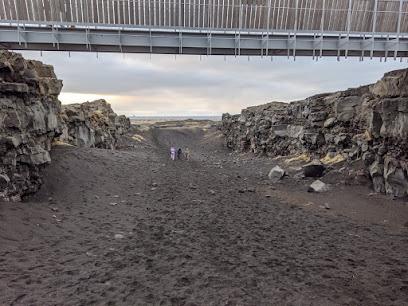
National Museum of Iceland
Explore the depths of Iceland's history at the National Museum, where artifacts unveil the tales of the Viking Age to modern culture.
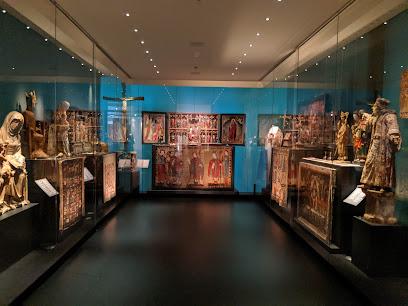
Arctic Adventures
Join Arctic Adventures for unforgettable tours in Iceland, including glacier hikes, whale watching, and more in the heart of Reykjavik.
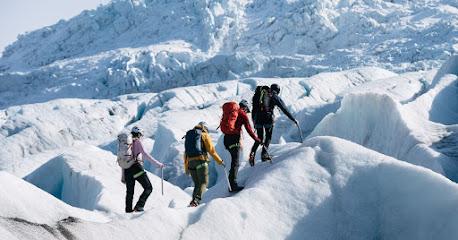
Krýsuvík
Experience the breathtaking geothermal beauty of Krýsuvík, Iceland's stunning natural wonder with bubbling mud pots and vibrant landscapes.
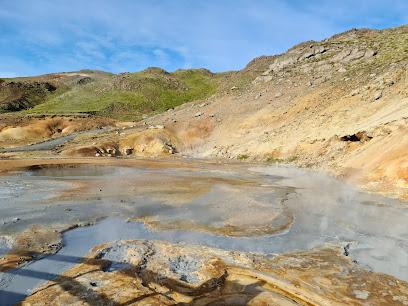
Whales of Iceland
Explore Iceland's marine wonders at Whales of Iceland, a captivating museum showcasing life-sized whale models and marine conservation efforts.
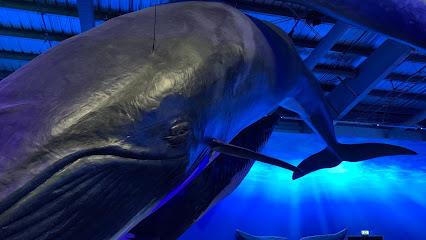
Skólavörðustígur Rainbow Street
Explore the vibrant Skólavörðustígur Rainbow Street in Reykjavik - a colorful hub of art, culture, and local charm waiting to be discovered.
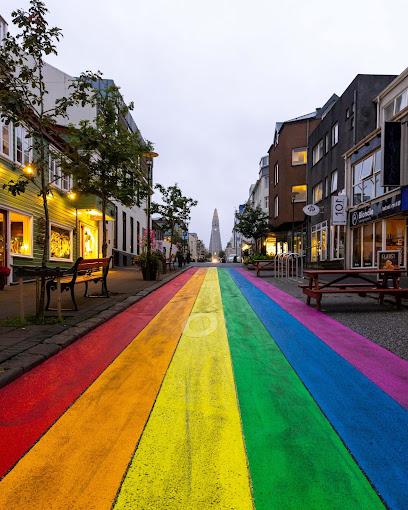
Gunnuhver Hot Springs
Explore the stunning Gunnuhver Hot Springs in Iceland, a geothermal paradise with vibrant blue waters and captivating landscapes.
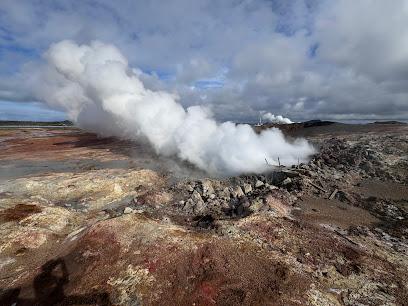
Laugardalslaug
Discover Laugardalslaug, Reykjavik's ultimate destination for relaxation and recreation, featuring geothermal pools and stunning Icelandic views.
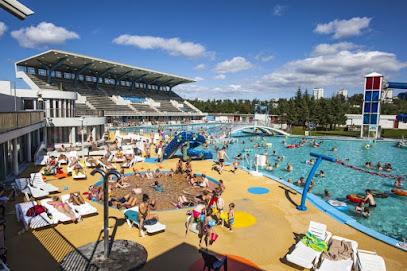
Essential places to dine
Kaffi Duus
Discover authentic Icelandic cuisine at Kaffi Duus in Keflavík – where fresh ingredients meet breathtaking views.
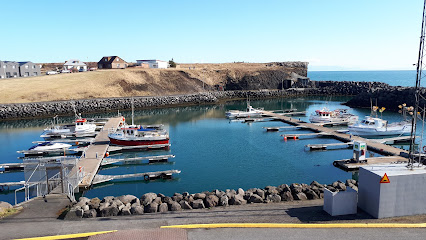
Olsen Olsen
Discover authentic Icelandic flavors at Olsen Olsen in Keflavík – where cozy dining meets local culinary tradition.
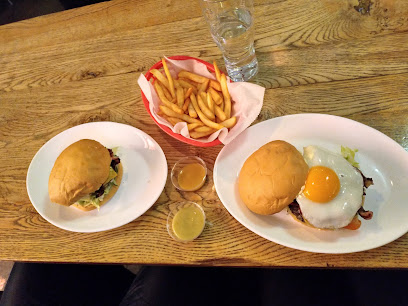
Issi fish and chips
Discover authentic Icelandic flavors at Issi Fish and Chips - where crispy fish meets fluffy chips in Njarðvík.
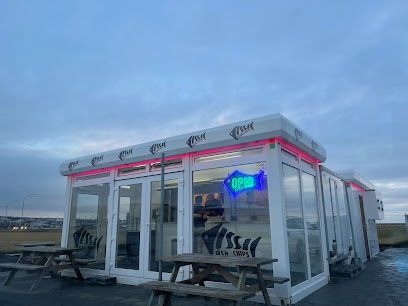
Kökulist bakery
Experience the essence of Icelandic flavor at Kökulist Bakery - where every bite tells a story.
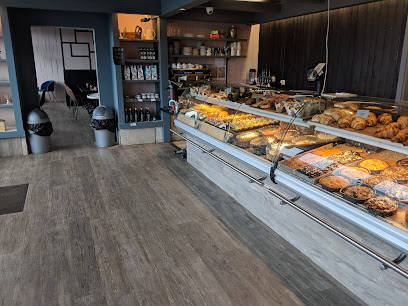
Nord
Experience authentic Icelandic cuisine at Nord, where fresh local ingredients meet Scandinavian culinary traditions.
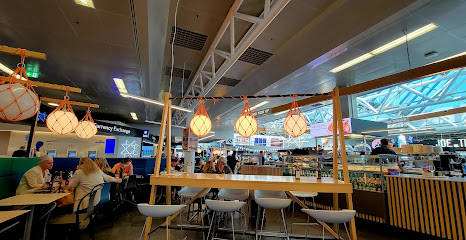
Hotel Keilir by Reykjavik Keflavik Airport
Discover unparalleled comfort at Hotel Keilir near Reykjavik Keflavik Airport with amenities that cater to every traveler's needs.
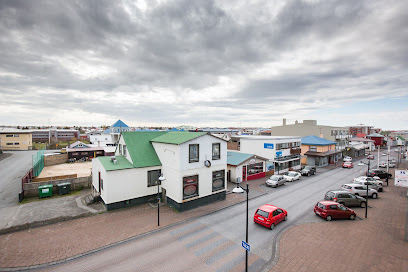
Langbest
Discover the essence of Icelandic cuisine at Langbest in Keflavík – where tradition meets modern taste in a welcoming atmosphere.
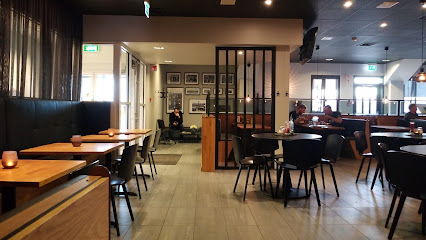
Röstin Restaurant - The Old Lighthouse café
Discover Icelandic flavors at Röstin Restaurant by the Old Lighthouse in Garður—where every meal comes with stunning ocean views.
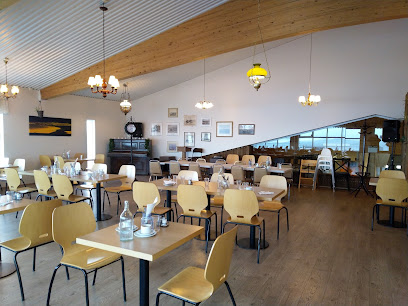
Oriento
Discover authentic Mediterranean flavors at Oriento in Keflavík - a culinary delight not to be missed by any traveler.
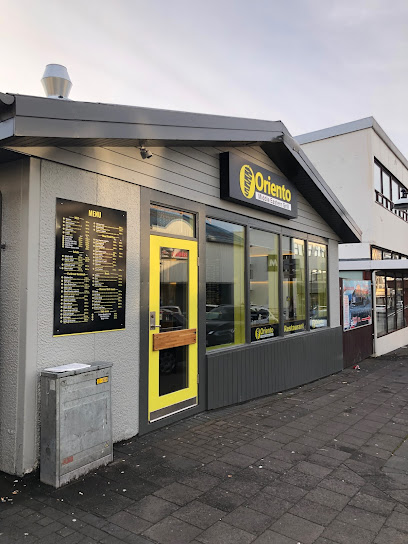
Biryani
Experience authentic Middle Eastern cuisine at Biryani in Keflavík – where tradition meets flavor in every bite.
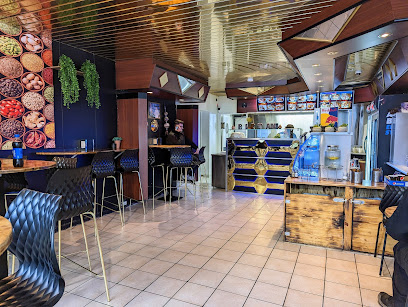
KFC
Indulge in delicious fast food at KFC Njarðvík - where crispy fried chicken meets Icelandic charm.
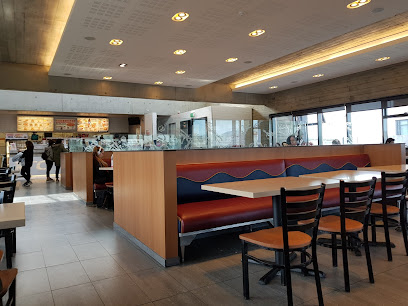
LiBRARY bistro/bar
Experience culinary excellence at LiBRARY Bistro/Bar in Keflavík – where local flavors meet vibrant atmosphere.
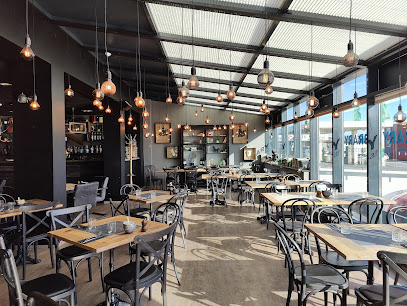
Veitingastaðurinn Ráin
Experience authentic Icelandic cuisine at Veitingastaðurinn Ráin in Keflavík, where local flavors meet modern culinary artistry.
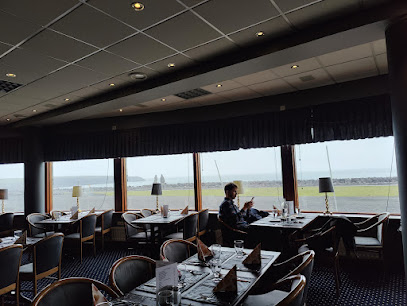
Thai Keflavik
Savor authentic Thai cuisine at Thai Keflavik - a culinary oasis blending traditional flavors with modern flair amidst Iceland's stunning landscapes.
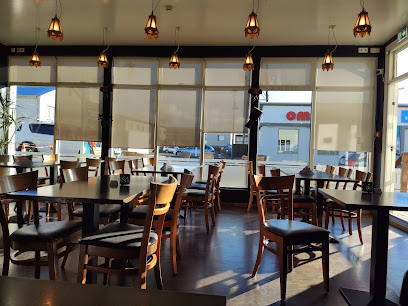
Antons Mamma Mia
Experience authentic Italian cuisine at Antons Mamma Mia in Keflavík - where every meal is a delightful journey through Italy's rich culinary heritage.
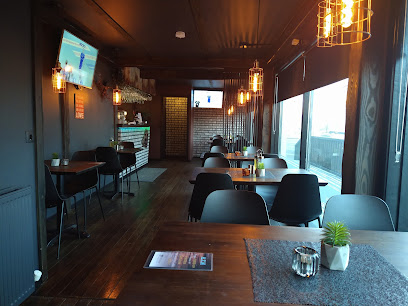
Markets, malls and hidden boutiques
Vínbúðin
Explore Keflavík's Vínbúðin for a taste of Icelandic craft beers, wines, and spirits, all in one convenient location.
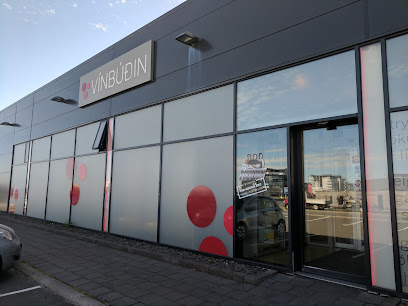
Mini Market
Experience the best of Icelandic shopping at Mini Market in Keflavík, where fresh produce, local specialties, and friendly service await.
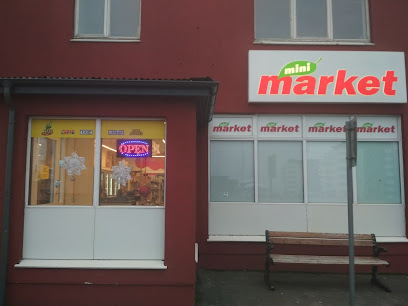
Krambúðin
Discover authentic Icelandic flavors at Krambúðin, your go-to grocery store in Keflavík for local products and culinary treasures.
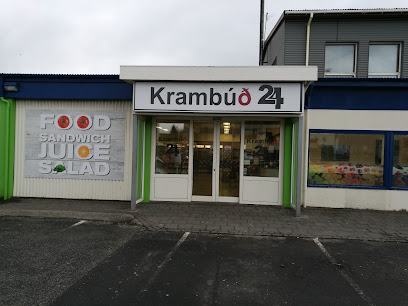
GeoSilica Iceland
Explore Iceland's natural beauty with wellness gifts at GeoSilica Iceland in Keflavík, featuring premium silica products for health and wellbeing.
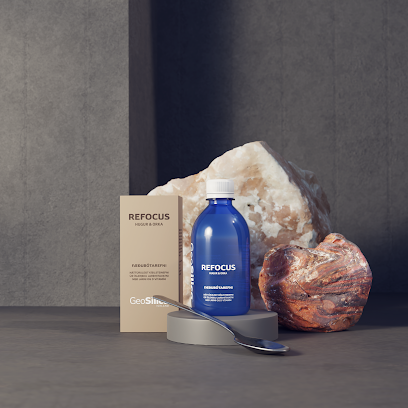
ZOZ.IS - VAPE SHOP
Explore Keflavík's top vaporizer store, ZOZ.IS, offering an extensive range of products and expert advice in a friendly atmosphere.
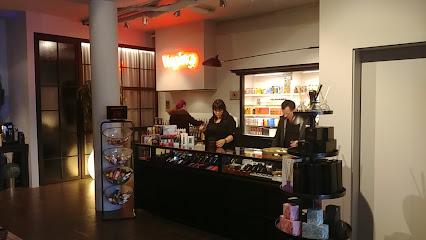
Stapafell
Discover the charm of Icelandic souvenirs at Stapafell, a unique gift shop in Keflavík offering authentic handmade treasures.
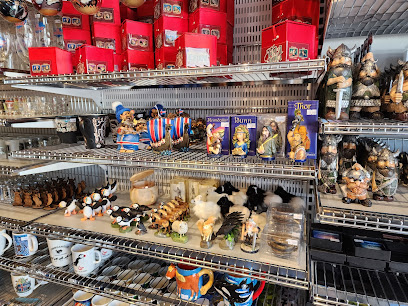
Kompan - Nytjamarkaður fjölsmiðunnar
Explore unique Icelandic home goods and crafts at Kompan - Nytjamarkaður fjölsmiðunnar in Keflavík, a must-visit for every traveler.
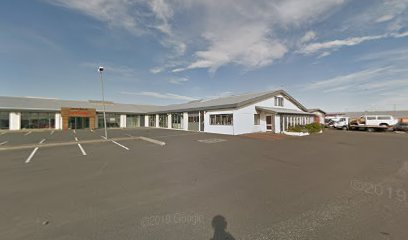
Blómahús Mögdu
Explore the enchanting Blómahús Mögdu, a floral paradise in Keflavík, offering exquisite arrangements of local Icelandic flowers for every occasion.
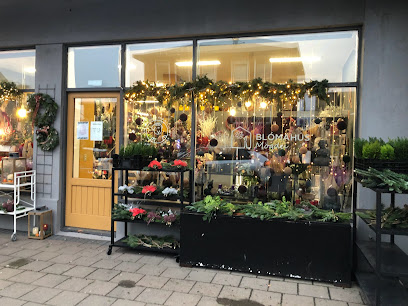
Rammagerdin Iceland Giftstore
Explore authentic Icelandic souvenirs at Rammagerdin Gift Store, featuring handcrafted items and unique home goods that reflect local culture.
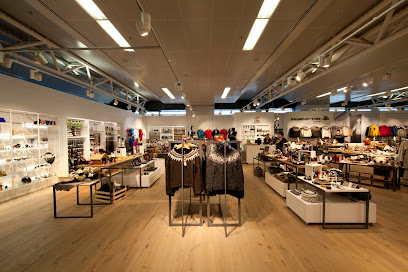
Jubi Ehf
Discover local flavors and essentials at Jubi Ehf, Keflavík's favorite grocery store, where Icelandic culture meets convenience.
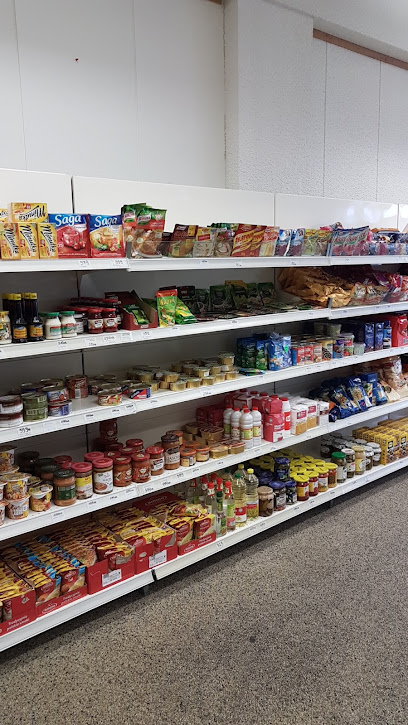
Urta Islandica - Sea and salt workshop
Explore the unique flavors of Iceland at Urta Islandica, a gourmet grocery store specializing in sea and salt products.
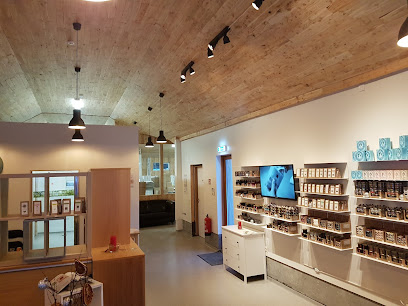
Víkurbásar
Explore sustainable fashion at Víkurbásar, Keflavík's hidden gem for unique second-hand clothing and accessories.
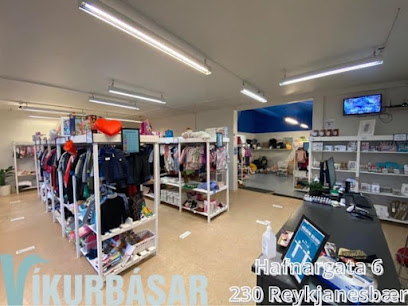
Skartsmidjan
Discover Skartsmidjan, Keflavík's premier hobby and craft store, offering a wide selection of crafting supplies, yarn, and unique handmade treasures.
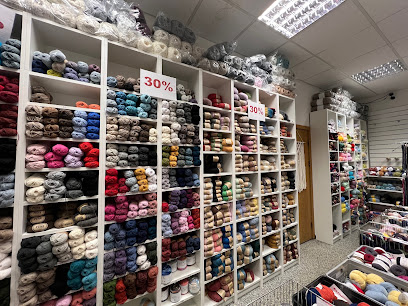
Skýjaborgir Vape Shop
Discover Skýjaborgir Vape Shop in Keflavík for premium vaping products and expert guidance from friendly staff in a welcoming atmosphere.
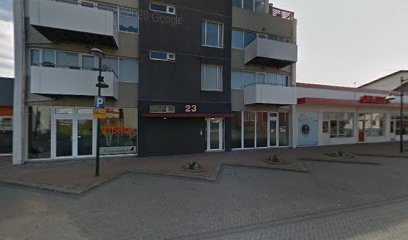
Múrbúðin
Explore Múrbúðin in Keflavík for all your hardware and DIY needs, where quality meets friendly service.
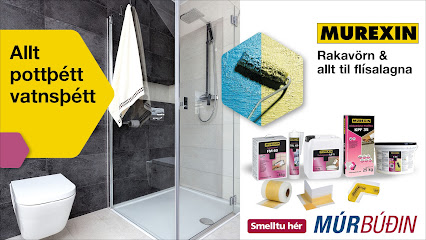
Essential bars & hidden hideouts
Kaffi Duus
Discover the flavors of Iceland at Kaffi Duus in Keflavík, where delightful cuisine meets stunning harbor views in a cozy atmosphere.
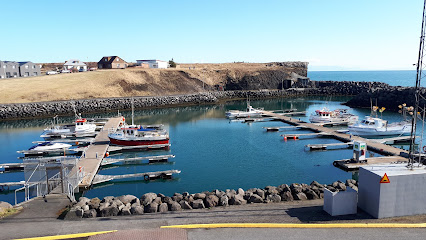
Olsen Olsen
Discover the flavors of Iceland at Olsen Olsen, a cozy diner in Keflavík offering fresh, local cuisine and a welcoming atmosphere.
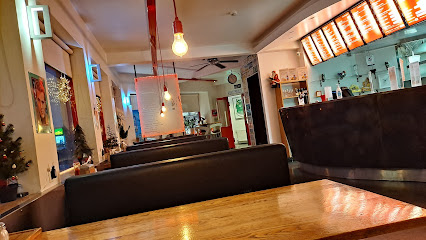
Langbest
Discover the authentic taste of Iceland at Langbest, a beloved restaurant in Keflavík known for its fresh ingredients and inviting ambiance.
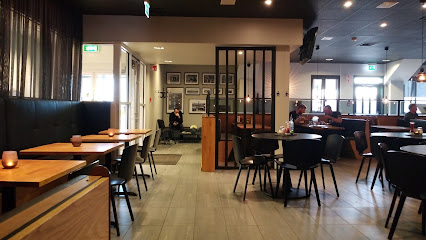
Oriento
Discover the essence of Mediterranean cuisine at Oriento in Keflavík, Iceland – a culinary journey you won’t forget.
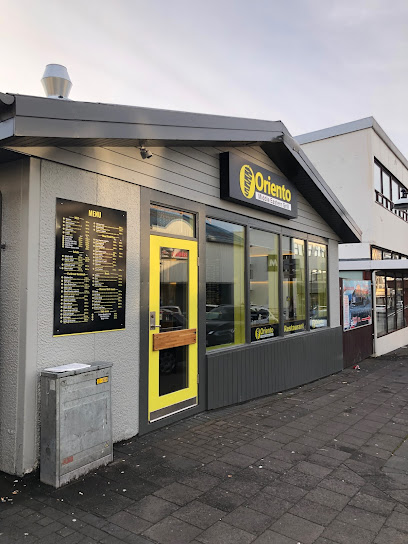
Cafe Petite
Discover Cafe Petite in Keflavík – a cozy bar and lounge offering delightful coffee, snacks, and a relaxing atmosphere perfect for travelers.
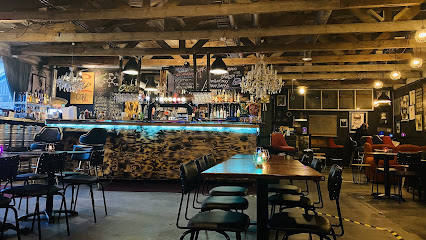
LiBRARY bistro/bar
Discover the culinary delights of LiBRARY Bistro/Bar in Keflavík, where local flavors meet a welcoming atmosphere for an unforgettable dining experience.
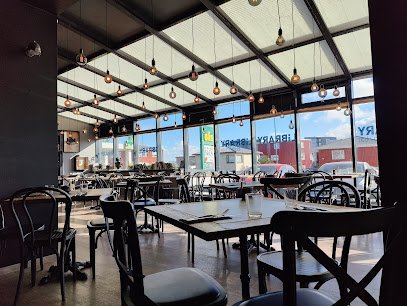
Veitingastaðurinn Ráin
Discover the flavors of Iceland at Veitingastaðurinn Ráin, where fresh ingredients meet warm hospitality in the heart of Keflavík.
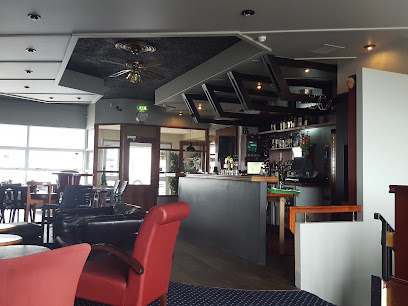
Antons Mamma Mia
Experience authentic Italian cuisine in Keflavík at Antons Mamma Mia, where every dish is crafted with passion and fresh ingredients.
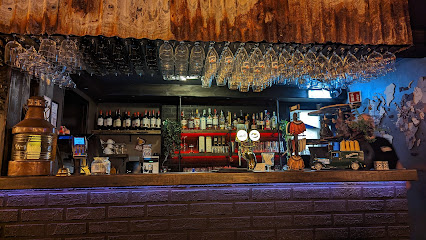
Kef Restaurant
Discover the flavors of Iceland at Kef Restaurant in Keflavík, where local ingredients meet exceptional dining experiences.
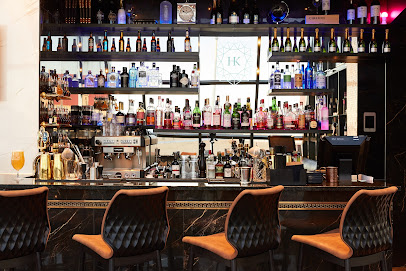
Pulsuvagninn
Experience the iconic Icelandic hot dog at Pulsuvagninn, a must-visit eatery in Keflavík for travelers seeking authentic local flavors.
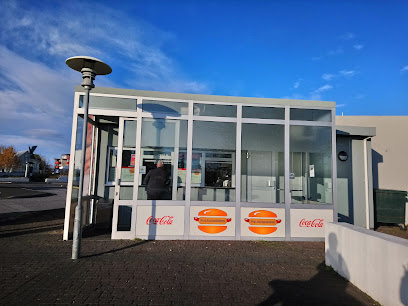
Kína Panda
Experience the essence of authentic Chinese cuisine at Kína Panda, Keflavík's premier dining destination for flavor and hospitality.
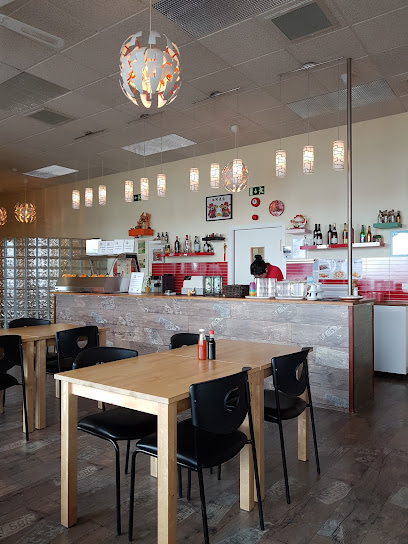
Paddy's Beach Pub
Experience the perfect blend of sports, local cuisine, and a lively atmosphere at Paddy's Beach Pub in Keflavík.
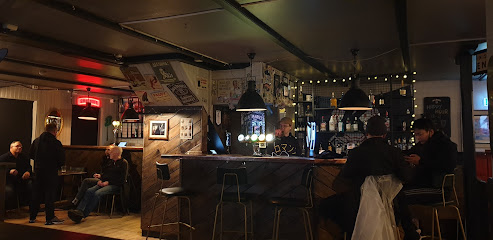
Malai Thai
Discover the vibrant flavors of Thailand right in Keflavík at Malai Thai, where authentic dishes meet a warm and inviting atmosphere.
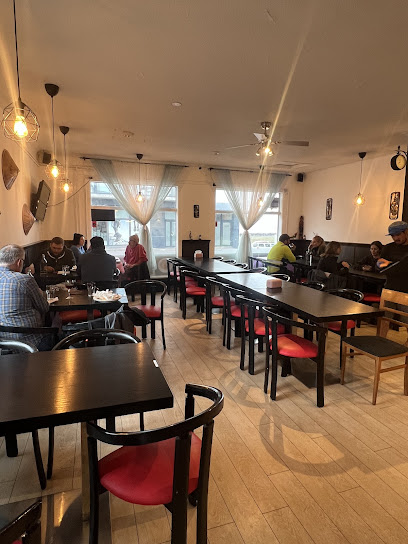
Polskur Matur
Discover the taste of authentic Polish cuisine at Polskur Matur in Keflavík, where every dish is a culinary journey.
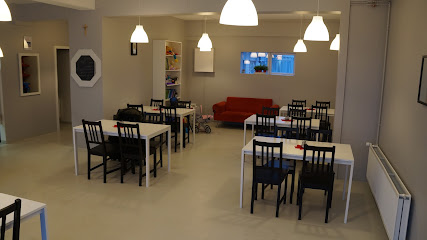
Travel experiences inspired by this city
Explore more travel diariesLocal Phrases
-
- HelloHalló
[HAH-loh] - GoodbyeBless
[bless] - YesJá
[yow] - NoNei
[nay] - Please/You're welcomeGjörðu svo vel
[GYOH-thoo svoh vel] - Thank youTakk fyrir
[tahk FIH-rir] - Excuse me/SorryAfsakið
[AF-sah-kith] - How are you?Hvað segir þú?
[kvath SEH-yir thoo] - Fine. And you?Fínt. Og þú?
[feent. oh thoo] - Do you speak English?Talar þú ensku?
[TAH-lahr thoo EHN-skoo] - I don't understandÉg skil ekki
[yeh shkil EH-kki]
- HelloHalló
-
- I'd like to see the menu, pleaseÉg væri til í að sjá matseðilinn, takk
[yeh VYEH-ri til ee ath syow MAHT-se-thil-inn, tahk] - I don't eat meatÉg borða ekki kjöt
[yeh BOHR-tha EH-kki chyot] - Cheers!Skál!
[skowl] - I would like to pay, pleaseÉg myndi vilja greiða, takk
[yeh MIN-dee VIL-ya gray-tha, tahk]
- I'd like to see the menu, pleaseÉg væri til í að sjá matseðilinn, takk
-
- Help!Hjálp!
[HYOWLP] - Go away!Farðu í brott!
[FARTH-oo ee brawt] - Call the Police!Hringdu í lögreglu!
[HRING-thu ee LOW-gre-glou] - Call a doctor!Hringdu í læknir!
[HRING-thu ee LAYK-nir] - I'm lostÉg er týndur
[yeh air TEEN-thur] - I'm illÉg er veikur
[yeh air VAY-kur]
- Help!Hjálp!
-
- I'd like to buy...Ég ætla að kaupa...
[yeh AYT-la ath KOW-pa] - I'm just lookingÉg er bara að skoða
[yeh air BAH-ra ath SKOH-tha] - How much is it?Hvað kostar það?
[kvath KOS-tar thah] - That's too expensiveÞað er of dýrt
[thath air ohv DEERT] - Can you lower the price?Geturðu lækkað verðið?
[GEH-tur-thoo LAY-kath VER-thith]
- I'd like to buy...Ég ætla að kaupa...
-
- What time is it?Hvað er klukkan?
[kvath air KLOO-kahn] - It's one o'clockKlukkan er eitt
[KLOO-kahn air ayht] - Half past (10)Hálftíu (10)
[HOWLFT-yoo (10)] - MorningMorgunn
[MAWR-gun] - AfternoonSíðdegis
[SEETH-de-yis] - EveningKvöld
[kvulth] - YesterdayÍ gær
[EE gire] - TodayÍ dag
[EE dahk] - TomorrowÁ morgun
[ow MAWR-gun] - 1Eitt
[ayht] - 2Tvö
[tvuh] - 3Þrjú
[thri-yoo] - 4Fjögur
[FYOH-gur] - 5Fimm
[feem] - 6Sex
[sehx] - 7Sjö
[syoh] - 8Átta
[ow-tha] - 9Níu
[NEE-yoo] - 10Tíu
[tee-yoo]
- What time is it?Hvað er klukkan?
-
- Where's a/the...?Hvar er...?
[kvar air] - What's the address?Hvað er heimilisfangið?
[kvath air HAY-mi-lis-fang-ith] - Can you show me (on the map)?Geturðu sýnt mér (á kortinu)?
[GEH-tur-thoo seent mair (ow KOR-ti-nu)] - When's the next (bus)?Hvenær kemur næsta (strætisvagn)?
[KVEN-ayr KEH-mur NIE-sta (stray-tis-vahk-n)] - A ticket (to ....)Einn miði (til ...)
[ayht MEETH-i (til)]
- Where's a/the...?Hvar er...?
History of Keflavik
-
Keflavik, located on the Reykjanes Peninsula in Iceland, has roots that trace back to the early Viking Age. The name 'Keflavik' translates to 'Driftwood Bay,' a nod to the driftwood that would wash up on its shores, providing essential resources for the early settlers. Archaeological evidence suggests that the area was used seasonally by Viking seafarers, who found the natural harbor a strategic advantage.
-
The 16th and 17th centuries marked a significant period for Keflavik as it transformed into a bustling fishing hub. The rich fishing grounds off Iceland's coast attracted both local fishermen and foreign traders, particularly from England and the Hanseatic League. This period saw the growth of small fishing villages and an increase in trade, laying the foundation for Keflavik's economic development.
-
From the late 17th century until the early 19th century, Iceland was under Danish rule, and Keflavik, like other Icelandic towns, was subject to the Danish trade monopoly. This meant that all trade was controlled by Danish merchants, which significantly impacted the local economy. Despite these restrictions, Keflavik continued to grow, with its fishing industry remaining a vital source of livelihood for its residents.
-
World War II marked a turning point for Keflavik with the arrival of the United States military in 1941. The establishment of the Keflavik Air Base brought significant changes, including the construction of the Keflavik International Airport. The presence of the military base not only boosted the local economy but also introduced new cultural influences and technologies, accelerating Keflavik's modernization.
-
Following World War II, the Keflavik Air Base remained a crucial NATO installation during the Cold War. The base continued to influence the town's development through the second half of the 20th century, bringing economic stability and fostering international connections. Keflavik's infrastructure improved, and the town expanded, increasingly integrating with the broader Icelandic economy and culture.
-
In 2006, the U.S. military officially closed the Keflavik Air Base, marking the end of an era. This withdrawal presented both challenges and opportunities for the town. The local government quickly moved to repurpose the base's facilities, transforming them into the Asbru Enterprise Park, a hub for business and innovation. This transition helped mitigate the economic impact and paved the way for new growth sectors.
-
Today, Keflavik is best known for being home to Iceland's largest international airport, serving as the primary gateway for tourists visiting the country. The town has embraced its role in tourism, offering a range of services and attractions that highlight Icelandic culture and natural beauty. Keflavik's history is celebrated through its museums, such as the Viking World Museum and the Icelandic Museum of Rock 'n' Roll, which showcase the town's rich heritage and vibrant cultural scene.
Keflavik Essentials
-
Keflavik is home to Iceland's main international airport, Keflavik International Airport (KEF). It is located about 50 kilometers southwest of Reykjavik, the capital city. Direct flights to Keflavik are available from various major cities across Europe, North America, and other regions. Upon arrival, you can use airport shuttle buses, taxis, or car rentals to reach your destination in Keflavik or Reykjavik.
-
Keflavik is a compact town, making it easy to explore on foot. For longer distances, local buses and taxis are readily available. The Strætó bus network connects Keflavik with Reykjavik and other parts of Iceland. Renting a car is also a popular option, providing the flexibility to explore the surrounding areas at your own pace. Bicycles can be rented for a more eco-friendly and immersive experience.
-
The official currency in Iceland is the Icelandic Króna (ISK). Credit and debit cards are widely accepted in Keflavik, including in shops, restaurants, and hotels. ATMs are available throughout the town for cash withdrawals. It is advisable to carry some cash for use in smaller establishments and rural areas where card payments may not be accepted.
-
Keflavik is generally a safe destination for tourists. Crime rates are low, but it is always wise to take standard precautions. Keep your belongings secure, avoid walking alone at night in unfamiliar areas, and remain aware of your surroundings. There are no specific high-crime neighborhoods targeting tourists, but staying vigilant is always recommended.
-
In case of an emergency, dial 112 for immediate assistance from police, fire, or medical services. Keflavik has a local police station and medical facilities. It is important to carry travel insurance that covers medical emergencies. Pharmacies are available in the town for over-the-counter medications and minor health issues.
-
Fashion: Do dress in layers and be prepared for varying weather conditions. Waterproof and windproof clothing is recommended. Avoid wearing overly revealing clothing. Religion: Do respect local customs and traditions. Although Iceland is predominantly secular, some churches are still in use, and it is respectful to remain quiet and dress modestly when visiting. Public Transport: Do be courteous to bus drivers and fellow passengers. Don't eat or drink on public transport. Always check schedules in advance, as bus services may be less frequent in rural areas. Greetings: Do greet people with a simple 'Hello' or 'Góðan daginn' (Good day). Icelanders appreciate friendliness but value personal space. Eating & Drinking: Do try traditional Icelandic food, such as lamb, seafood, and skyr. Don't refuse hospitality, as it can be considered impolite. Tipping is not mandatory but appreciated for exceptional service.
-
To experience Keflavik like a local, visit the local fish market to sample fresh seafood or try a hot dog from a local stand—an Icelandic favorite. Engage with locals, who are often friendly and willing to share stories about their town's history and culture. Don't miss visiting the Viking World Museum or taking a walk along the scenic coastal paths. For a unique experience, consider visiting the nearby Blue Lagoon for a relaxing geothermal spa experience.
Trending Landmark in Keflavik
-
Blue Lagoon
-
Perlan
-
Sun Voyager
-
Keflavík International Airport
-
Bridge Between Continents
-
Gunnuhver Hot Springs
-
Reykjanesfólkvangur
-
Valahnúkamöl
-
KuKu Campervan Iceland
-
Viking World
-
Garður Old Lighthouse
-
Green Motion Car Rental Iceland
-
Aurora Hotel at Reykjavik-Keflavik Airport Terminal KEF
-
The Settlement Exhibition
-
Árbær Open Air Museum
Nearby Cities to Keflavik
-
Things To Do in Grindavik
-
Things To Do in Hafnarfjordur
-
Things To Do in Kopavogur
-
Things To Do in Reykjavik
-
Things To Do in Hveragerdi
-
Things To Do in Borgarnes
-
Things To Do in Selfoss
-
Things To Do in Olafsvik
-
Things To Do in Stykkisholmur
-
Things To Do in Vik
-
Things To Do in Blonduos
-
Things To Do in Isafjordur
-
Things To Do in Saudarkrokur
-
Things To Do in Akureyri
-
Things To Do in Dalvik















